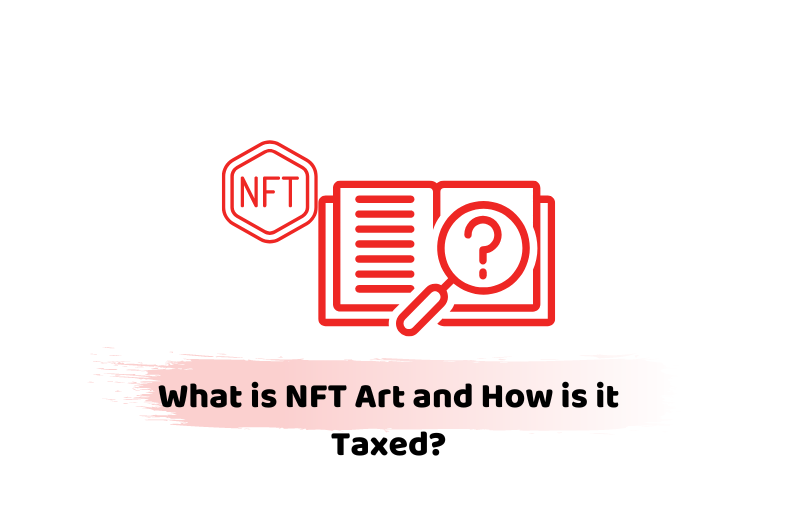Are you interested in digital art and want to know about the tax on NFT? You might be fond of Vincent Van Gogh, Leonardo Da Vinci and Claude Monet’s pieces of art. You might also have invested or dreamed of owning their most amazing and mesmerising pieces of artwork.
Similarly, NFT is a digital art that has transformed the art marketplace recently and breaking the norms of art and for the artists as well. Creative artists can make millions of dollars by selling their unique pieces of digital art by giving ownership and copyright of their pieces of art to another person.
But the question arises of what NFT is and how it is taxed in the UK. Let’s discuss everything about this digital art!
Are you wondering how does taxation work on digital assets like NFTs? Seek assistance from our professional and qualified tax advisors at Accotax.
What is NFT?
A Non-Fungible Token (NFT) is a digital or virtual masterpiece that the creators and sellers can buy and sell in a simulated marketplace. NFT inspired by the concept of cryptocurrency created much frenzy over the last two years.
A Non-Fungible Token cannot be exchanged with another asset of similar value as we do with physical coins of the same value. Instead, they are distinctive with a unique code owned by the investors or the creators.
Whoever owns these codes on a particular blockchain has all the copyrights of that virtual art. Although these masterpieces can be copied or recreated just like the paintings of popular artists, the investor enjoys the ownership of the original masterpiece.
NFT Marketplaces
You can buy and sell NFTs on a blockchain without physically owning the digital assets. The first-ever Digital assets ever sold were the CryptoPunks worth $11.8 million. These were a collection of 10,000 digital assets bought by an Israeli businessman.
Following is a list of the most popular digital marketplaces of the NFTs where buyers and sellers can end a deal and keep their virtual assets in their digital assets. These marketplaces vary in scale and the medium of purchase. Some of them accept only cryptocurrency while others allow the use of fiat money.
- Open Sea
- Binance
- Nifty Gateway
- Rarible
- SuperRare
Some financial companies have also kick started their own NFT blockchain and others are transforming their cryptocurrency blockchain with the NFTs also.
How Does the NFT Marketplace Work?
Blockchain marketplaces bring together the investors (Buyers) and creators (Sellers) and facilitate the transaction between them. For this, they charge a fee like a gas fee for the facilitation of transactions. Some blockchains allow transactions only in specific cryptocurrencies while others also accept fiat money.
The sellers can store their digital art and currency in their digital wallets. Now, the question arises about the tax on NFT and these transactions. Let’s discuss it.
What Consists of An NFT?
An NFT can be any digital asset that can be owned by anyone. Following is the list of NFT art pieces available right now.
- Artwork
- Real Estate
- Event Tickets
- Memes
- In-game Items Like Avatars
- Domain Names
- Music
In other words, it could be anything from digital assets to physical assets just like real estate. The market is a little bit complex for beginners and you can learn more about it before you invest in this business of digital art to avoid any scams.
How Does HMRC Tax NFTS?
NFTs are taxed by the HMRC just like the buying and sale of physical assets. When you sell something, you get a capital gain. So, the NFTs sellers pay a CGT. If you are a buyer and get a handsome amount by selling your digital art, you will be liable to pay an Income Tax.
However, it is liable to different conditions and elements. For example, if you gift someone your NFT, the taxes on NFT will be different.
The market of NFTs is still evolving, and so does the HMRC taxes regulations about them. So, it is recommended to get assistance from a professional tax advisor with experience in cryptocurrency to give you the best advice on your NFT transaction.
Final Thoughts
Lastly, we can conclude the taxes on NFTs discussion by saying that HMRC taxes are applicable only when someone makes a transaction of NFTS. The CGT and income taxes will be applied only.
It all depends on how long you have owned the assets and how you get the asset as a purchase or as a gift. With the transforming digital and cryptocurrency market, the taxes are still under evolution.
You can get faster, reliable and efficient tax assistance on your Crypto and NFTs purchases from the professional tax advisors at Accotax. Send us a message or give us a call.
Disclaimer: All the information provided in this article on Tax on NFT, including all the tax and graphics, is general in nature. It does not intend to disregard any of the professional advice.





















































